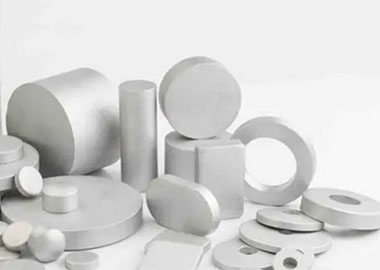Product introduction
Marine grade metals are specially treated to withstand use in water or wet environments. Usually, this is done by adding special alloys to the metal to make it corrosion-resistant. Most metals, such as aluminum, have marine grades.
Structural steel is the traditional material used in the shipbuilding industry due to its excellent mechanical properties and low manufacturing costs. However, the increasing demand for larger, yet light ships made designers search for alternative materials. Aluminum alloys were a great choice because they provided high corrosion resistance, weighed less, and were considered economical in the long run.
Features
Although aluminum by itself, compared to many other metals, offers high corrosion resistance, it requires additional protection when exposed to water and moisture in marine applications. The alloying process combines aluminum with other metals such as magnesium to create an even stronger resistance to corrosion, making it more ideal for applications that contact water and saltwater. These types of aluminum alloys are referred to as marine grade aluminum.
Cast and Wrought
Aluminum alloys are usually categorized based on the primary alloying element added to the aluminum along with the capability of the alloy to react to mechanical and thermal treatments.
Cast aluminum alloys are produced through a process which involves pouring molten metal liquid into molds of specific shapes and then cooled.
Wrought aluminum alloys are made through a process of rolling, forging, or mechanically deforming solid metals to the desired shape.
Marine grade wrought aluminum alloys often include aluminum magnesium silicone alloys and aluminum magnesium alloys. These wrought alloys of aluminum are often used for docks, boat lifts, structural shipbuilding, and other offshore structural applications.
Cast aluminum alloys are suitable for many different types of marine applications since the casting process allows for the creation of various intricate shapes, such as those for structural components, supports, interior fixtures, and a ship’s superstructure. These alloys are often aluminum silicone alloys or aluminum magnesium alloys.
5052 Alloy:
High Fatigue Strength Benefits
Marine grade aluminum 5052 is a non-heat treatable aluminum alloy that possesses exceptional fatigue strength beyond most other aluminum alloys. It also provides good workability for easy forming into intricate shapes and provides solid corrosion resistance to marine saltwater and atmospheric conditions.
6061 Alloy:
Workability and Corrosion Resistance
Aluminum 6061 is a highly versatile alloy for use in marine grade applications. It has excellent corrosion resistance and other mechanical properties. Under the annealed condition, it possesses solid workability and different techniques are used when fabricating this aluminum alloy. Marine grade aluminum 6061 is offered in sheet, plate, and extruded shape forms and is ideal for an array of near-water applications.
As an aluminum alloy with added silicon, grade 6061 offers superb corrosion resistance and is also easier to finish and weld than aluminum grade 5052. This alloy of aluminum is often used when extra strength is required. It is often used when workability and other properties will be helpful considering its higher cost.
6063 Alloy:
Decorative and Structural Purposes
Aluminum alloy 6063 is used primarily for architectural and decorative purposes as opposed to structural support purposes. It has excellent corrosion resistance, tensile properties, and finishing characteristics. This aluminum alloy is used for various exterior and interior architectural purposes, including for trim.
Applications
Marine grade aluminum alloy is not only used for railings, docks, stairs, ladders, and other items and furnishing on or close to the water, it can also be used for storage facilities and tanks that are not specifically marine-related.
Another applicable aluminum product for marine use is aluminum honeycomb panels. These panels provide a number or advantages properties, including:
High strength and light weight
High impact resistance
High rigidity
Vibration dampening
May be fabricated to various thicknesses
Good insulation from sound and heat
Benefits of Marine Grade Aluminum
The various properties of marine grade aluminum alloy that make it ideal for marine conditions include:
Excellent resistance to corrosion due to saltwater exposure
Very lightweight with an excellent strength-to-weight ratio
Offered in multiple grades, plates, sheets, and extrusions
Usable with various fabrication procedures








